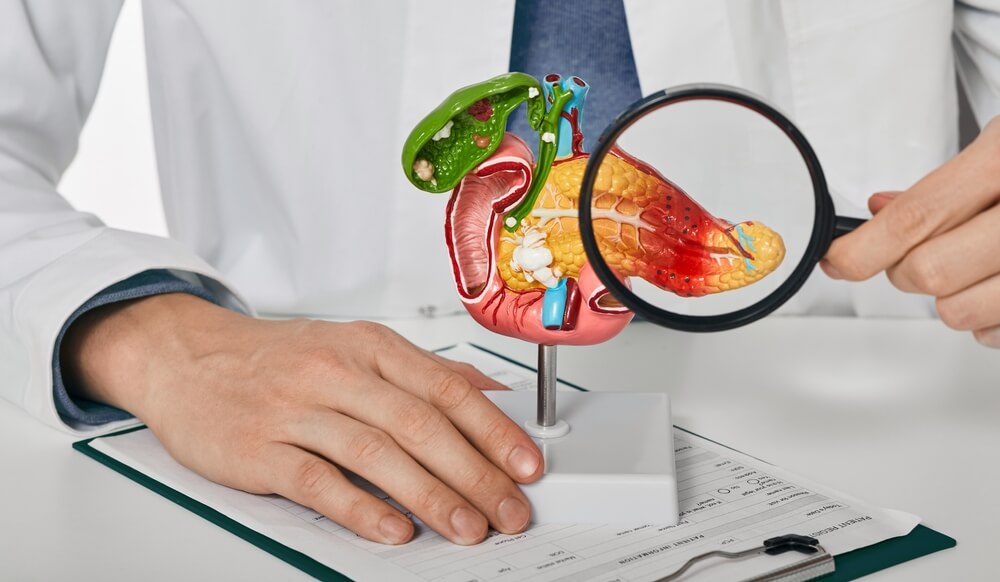There are a lot of articles about heart health and blog posts about keeping your brain, lungs, and liver healthy, but when it comes to pancreas health and preventing pancreatitis, there’s much less to read up on. Still, this organ should be talked about more; more precisely, habits that can keep it healthy and help avoid severe conditions such as exocrine pancreatic insufficiency or EPI.
As such, in this blog post, Dr. Omar Rashid and his expert team will discuss the importance of a healthy pancreas and how patients can keep the said organ in optimal health.
What does a Healthy Pancreas Look Like?
The pancreas is located in the abdomen, near the gallbladder, liver, and spleen, behind the stomach. Experts usually refer to the pancreas as an organ with an odd shape, often described as something similar to a pear, but often, some experts will say that it bears some resemblance even to a tadpole. Because of this, a lot of people outside the medical field might not have even seen a picture of the pancreas and aren’t even sure what the organ’s essential functions are.
On that end, a healthy pancreas is responsible for secreting fluids into the gastrointestinal tract that aid in breaking down the nutrients from the foods we consume. Apart from that, the pancreas is also responsible for producing the hormone insulin (which the majority of readers have probably heard about). This hormone helps control blood sugar levels in the body.
Unfortunately, medical issues can occur with the pancreas. According to data from the National Pancreas Foundation, around 300,000 people a year are treated in hospitals throughout the United States for acute pancreatitis or inflammation in the pancreas, which, if left unaddressed, may even become a life-threatening problem. And as mentioned above, pancreatitis may also lead to EPI, which develops when the human body simply won’t prejudice enough digestive enzymes.
Luckily, there are several steps people can take to keep their pancreas healthy and to reduce the potential risks of developing pancreatitis, which may cause further, more severe complications. Still, before we discuss the preventative steps to avoid pancreatitis, we will first talk about the condition itself, its causes, and how it can lead to more severe health problems if not addressed in time.
About Pancreatitis

To know how to avoid pancreatitis, first, we must understand what the condition actually means and its causes.
Pancreatitis can be best understood as a condition in which the pancreas becomes inflamed. The digestive enzymes start slowly breaking down the organ itself instead of being active only inside the intestines performing their main function.
Aside from causing a lot of pain and discomfort, this condition can also highly interfere with basic digestive processes and prevent adequate food/nutrient absorption, leading to nausea, bloating, fever, vomiting, and diarrhea.
Needless to say, as the rate at which the digestive system can absorb nutrients diminishes, other health problems may also develop, such as unintended weight loss and nutritional deficiencies.
Pancreatitis can be either chronic, which repeatedly occurs long-term, or acute, appearing suddenly and getting better after treatment.
For the most part, acute cases go away within only a few days with the help of some dietary changes and alcohol abstinence. In other cases, acute pancreatitis may also require treatments like pain medication, antibiotics, fluids, or a minor medical procedure in which doctors manually widen the patient’s pancreatic bile duct opening.
On the other hand, chronic cases are much more severe, as they can potentially cause significant damage to the pancreas and may lead to the development of EPI.
How to Avoid Pancreatitis: Understanding the Causes
Experts usually state that alcohol abuse and gallstones are the leading causes of pancreatitis.
The latter are small pebbles from hardened bile. They can trigger acute inflammation if they get stuck in or pass through the bile duct, the common tube that connects the pancreas, gallbladder, and liver to the small intestine.
Consuming alcohol may also cause harm and damage to the pancreas. Because of this, many doctors recommend the cessation of alcohol consumption to lower the risks of pancreatitis development.
Some expert sources state that alcohol abuse is the second leading cause of acute pancreatitis, preceded only by gallstones. On the other hand, alcohol is the main leading cause of chronic pancreatitis cases, being the main culprit behind 40 to 70% of all reported cases.
Furthermore, other pancreatitis causes can include the following:
- Elevated levels of fat in your blood
- High blood calcium levels
- Damage to the pancreas through an abdominal injury
- Hormonal disbalances/abnormalities
- Viral infections
- Specific medications like diabetes drugs, steroids, certain antivirals, and estrogen
- Previous pancreatic surgery
- Smoking
- Genetic pancreatic abnormalities
How To Keep Your Pancreas Healthy – Ways to Prevent Inflammation

Fortunately, there are several steps you can take to reduce the risk of inflammation and avoid severe medical problems such as exocrine pancreatic insufficiency.
Here are five ways to keep your pancreas healthy:
- Limit the amount of alcohol you drink. Limiting alcohol consumption (or avoiding alcohol altogether) can help keep the pancreas safe from the toxic side effects of alcohol and reduce inflammation risks.
- Lose excess weight and embrace regular exercise. Statistics show that people carrying excess weight are at a higher risk of developing gallstones which can increase the risk associated with developing acute pancreatitis. Shedding off a few extra pounds through exercise and maintaining a healthy weight with the additional help of a well-balanced diet can help prevent all this from happening.
- Follow a heart-healthy diet. Again, gallstones may form and lead to acute pancreatitis when bile, the fluid that helps with fat breakdown, accumulates too much cholesterol. To reduce cholesterol accumulation and gallstone formation, eating a heart-healthy diet rich in vegetables, fresh fruits, and whole grains can help prevent pancreatitis. Naturally, this means limiting or avoiding fried and fatty foods.
- Avoid crash diets. Losing excess weight is essential to keep your pancreas healthy, but it should be done gradually. When trying to lose all those pounds rapidly, the liver ups cholesterol production, thus further increasing the risk of developing gallstones.
- Quit smoking. According to a 2019 study, tobacco-smoking adults are 1.5 times more likely to encounter pancreatitis-related problems compared to nonsmokers.
Small Changes Can Have Massive Effects
While these five steps may seem a lot at first, with the right approach, each of these lifestyle changes can be implemented relatively quickly and stress-free. Try to adjust to your new lifestyle in smaller steps, with moderate changes at first, adding more and more healthy habits on the way. With this, you will always be able to give your body and mind enough time to accommodate every change and welcome new ones.
And remember, pancreatitis can lead to severe problems, and these lifestyle changes can help you limit the associated risks.
Lastly, feel free to reach out to Dr. Omar Rashid for more information regarding pancreatic health.


